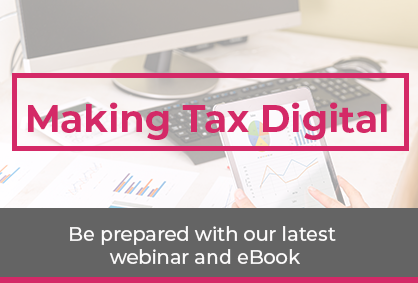BLOG
Letting a property as a furnished holiday let- is it worthwhile?
 Where a property is located in a holiday region, a consideration will be whether to let it as a holiday let or on a longer-term basis. As well as differing rental income profiles, there are tax differences to consider.
Where a property is located in a holiday region, a consideration will be whether to let it as a holiday let or on a longer-term basis. As well as differing rental income profiles, there are tax differences to consider.
Furnished holiday lets
From a tax perspective, special rules apply to furnished holiday lets, which provide a number of advantages compared to the tax regime applying to other rental business.
Furnished holiday lettings:
- benefit from capital gains tax reliefs for traders such as business asset rollover relief, entrepreneurs’ relief, relief for gifts of business assets and relief for loans to traders;
- benefit from availability of plant and machinery capital allowances for items of furniture, fixtures and fittings; and
- profits count as earnings for pension purposes.
To benefit from these advantages, any furnished holiday lettings are treated separately from other lets and the profits must be worked out separately for each furnished holiday lettings business.
What counts as a furnished holiday let
The property must be in the UK or the EEA and must be let furnished; the furniture provided must be sufficient for normal occupation and visitors must be able to use the furniture. The property must also be commercially let.
UK and EEA lets are treated as different furnished holiday lettings businesses.
The furnished holiday letting must also pass various tests.
The occupancy tests
There are three occupancy tests and all must be met for the property to be treated as a furnished holiday letting for tax purposes.
The pattern of occupation condition
A let will not count as a furnished holiday letting if the total of all lettings that exceed 31 days is more than 155 days in the tax year.
The availability condition
The property must be available for letting as a furnished holiday accommodation for at least 210 days in the tax year.
The letting condition
The property must be commercially let as furnished holiday accommodation for at least 105 days in the tax year. Longer lets of more than 31 days are excluded, unless the let extends beyond 31 days due to unforeseen circumstances.
If the property fails the letting condition and is not let for 105 days in the tax year, there are two concessionary routes by which the property may still qualify – by making an averaging election or a period of grace election. The elections can be used together.
Averaging election
Where a landlord has more than one property which is let as furnished holiday accommodation, the condition is treated as met where an averaging election is made as long as on average each property is let for at least 105 days in the tax year. So, for example, if a landlord has 4 properties which in total were let on lets of less than 31 days for at least 420 days, the letting conditions is met under an averaging election, even if any individual property is let for less than 105 days.
An averaging election must be made by the anniversary of 31 January following the end of the tax year, i.e. by 31 January 2021 for 2018/19.
Period of grace election
The second way in which the condition can be treated as met is by making a period of grace election where it can be shown that there was a genuine intention to let the property, but this did not happen due to unforeseen circumstances. The letting condition must have been met in the year before that for which the first period of grace election is made. A second period of grace election is permitted, but if a property does not meet the letting threshold in the fourth year after two consecutive period of grace elections, it will no longer qualify as a furnished holiday letting.
Losses
Losses can now only be carried forward and set against profits from the same furnished holiday lets business.
If the property does not qualify as a furnished holiday let, the normal tax rules for rental businesses apply.
Inform are here to help you so please contact us if you need further information on this or any other tax related matters.
Read more of Inform's tax blogs:




.jpg?width=1500&height=1000&name=amy-hirschi-K0c8ko3e6AA-unsplash-(5).jpg)

